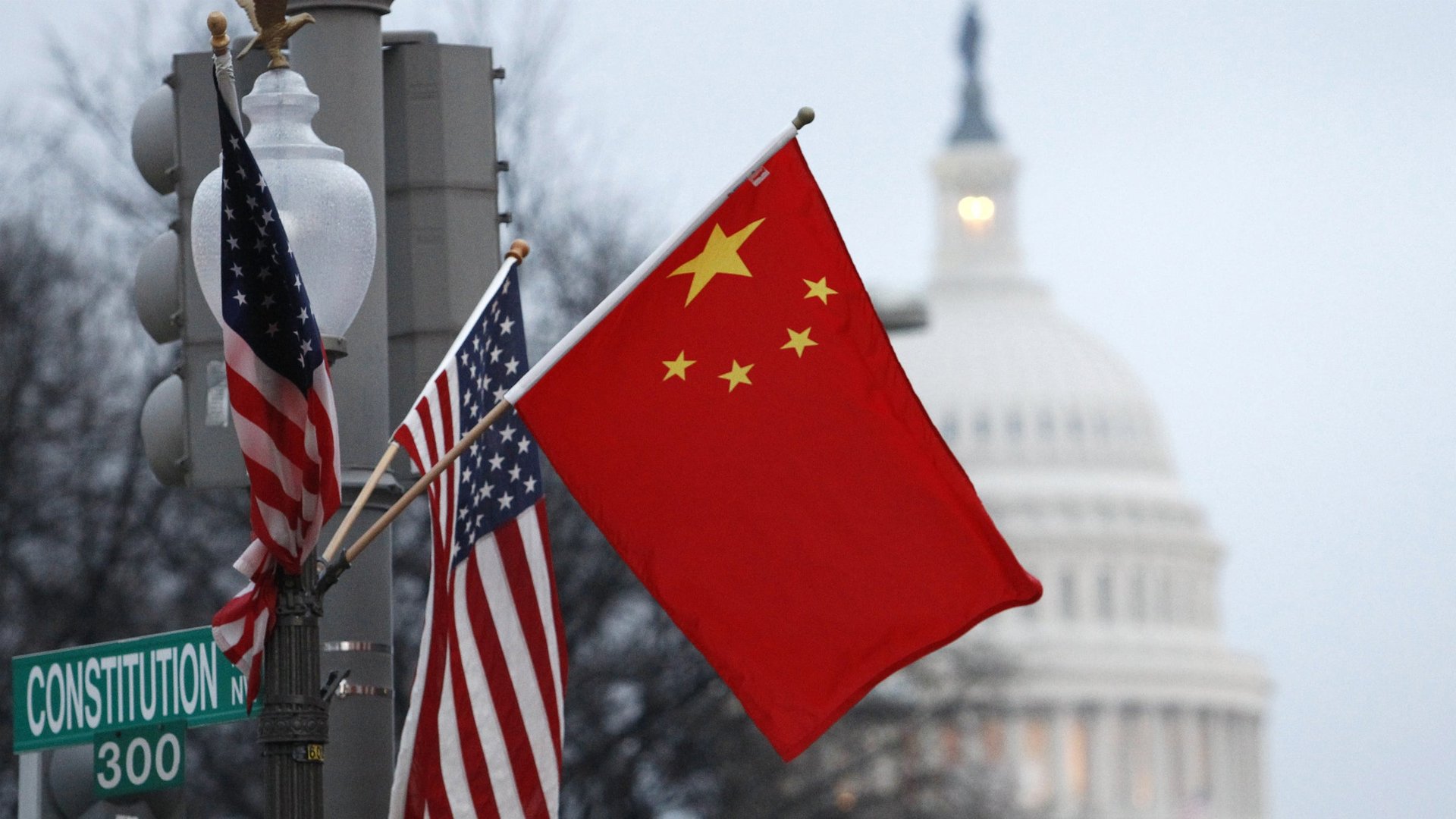Charted: The US companies, industries, and states that will suffer the most in a US-China trade war
President-elect Trump has set global businesses on edge, after repeatedly threatening to impose tariffs of 35% on US companies that move jobs overseas, making false attacks about China’s currency policy, and taking a phone call from Taiwan president Tsai Ing-wen that threatens to upend years of protocol between Beijing and Washington, D.C.


President-elect Trump has set global businesses on edge, after repeatedly threatening to impose tariffs of 35% on US companies that move jobs overseas, making false attacks about China’s currency policy, and taking a phone call from Taiwan president Tsai Ing-wen that threatens to upend years of protocol between Beijing and Washington, D.C.
If relations between China and the US worsen, it could make things tougher for everyone from US diplomats to US expats in China, but the American companies that rely on the Chinese market could be the hardest hit. If Beijing slap retaliatory trade tariffs on US goods, or employs other ways of shutting US companies out of China, some could lose one of their fastest-growing markets.
Trump’s rattling of the US-China relationship comes after US exports to China nearly doubled under the previous presidential administration, although China’s slowing economy dampened growth last year.
The US exported $113 billion in goods to China throughout 2015, according to the US-China Business Council, for an average annual growth of 8..9% for the decade. China is United States’ third largest export partner after Canada and Mexico, and the fastest-growing major destination for US exported goods.
While most American companies are by no means completely dependent on China to make money, any trade war that introduced new tariffs on US goods sold in China or made it more difficult for US companies to do business there would hurt some profoundly. In the aggregate, US soybeans farmers, auto makers, and aircraft companies export the most to China.
But these sectors aren’t necessarily the ones that will suffer the absolute most. Research JP Morgan compiled in 2015 tracking revenue dependency on China of S&P 500 companies by sector suggests that technology companies, particularly component makers, rely on China for much of their business.
The firm ranks tech as the top sector when measured by “revenue exposure to China,” with 5.7% of their total corporate revenue exposure originating from China.
The tech firms most reliant on China specifically are overwhelmingly in the semi-conductor industry, involved in the manufacture, sale, or licensing of chips to other hardware vendors, according to Goldman Sachs research that was also published in 2015. Twelve of the top fifteen companies with the highest “revenue exposure” in China are involved in chips, and some of them earned the vast majority of their overall revenue in China.
Companies outside of tech component makers would also be affected. Casino company Wynn Resorts is the non-technology component company most dependent on sales to China, JP Morgan Chase said, with 77% of its revenue from China. Yum! Brands (which operates KFC), Tiffany & Co., and Apple, are also vulnerable.
Some of these companies would not necessarily be hit by the direct effects of any reciprocal tariffs, but could suffer in other ways if the relationship between the two countries worsens.
Qualcomm, for example, earns money not by exporting chips to China, but by collecting patent royalties from chips made by other semiconductor firms, and China is its biggest market. It has already faced setbacks in China when the government launched an anti-trust probe against it, which many argue was politically motivated. If a trade war ensues, there’s even more political motivation to heighten the hurdles of doing business.
China is also a top-five trade partner for almost every one of the US’s 50 states, with Washington, California, and Texas exporting the most to China by dollar value. Of the US states that are the top fifteen largest trade partners, eight voted for Trump in the 2016 election.